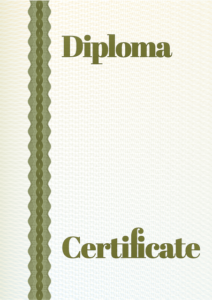Multilingual Approach to University Regulations: Global Governance Made Accessible
In today's globalized educational landscape, university University Regulations and Policies play a pivotal role in fostering fairness, consistency, and inclusivity across diverse cultural and linguistic contexts. These policies encompass various…….

In today's globalized educational landscape, university University Regulations and Policies play a pivotal role in fostering fairness, consistency, and inclusivity across diverse cultural and linguistic contexts. These policies encompass various aspects of academia, from enrollment to research ethics, aiming to create common frameworks in clear language to connect international academic communities. Multilingual documentation, professional translation services, and accessible online systems are key to ensuring all students understand regulations, promote participation, and respect diversity. AI integration further enhances accessibility and efficiency in policy management while upholding legal compliance.
In today’s global academic landscape, understanding and adhering to university regulations and policies is more complex than ever. With institutions spanning across borders and attracting students and faculty from diverse linguistic backgrounds, the submission and governance of these crucial documents require a nuanced approach. This article explores the multifaceted world of university regulations, delving into topics such as cultural sensitivity, digital accessibility, legal considerations, and cutting-edge technology like AI translation to ensure inclusive and effective policy implementation.
- Understanding the Global Reach of University Policies
- The Universal Language of Academic Regulations
- Translating Educational Guidelines for a Diverse Student Body
- Cultural Sensitivity in Higher Education Governance
- Digital Platforms for Multilingual Policy Submission
- Ensuring Accessibility: Language and University Policies
- Case Studies: Successful Implementation of Multilingual Regulations
- Legal Considerations in Cross-Language Document Sharing
- The Role of Interpretation Services in Policy Compliance
- Future Trends: AI and Machine Translation in Academia
Understanding the Global Reach of University Policies
In today’s globalized educational landscape, university regulations and policies extend far beyond the physical boundaries of campus. With institutions attracting students and faculty from around the world, these guidelines must consider a diverse range of cultural contexts and legal frameworks. Understanding the global reach of university policies is essential to ensuring fairness, consistency, and compliance across borders.
University regulations and policies shape the academic environment, governing everything from enrollment procedures and course offerings to research ethics and intellectual property rights. They play a crucial role in fostering an inclusive and supportive learning community, regardless of where students hail from. As institutions expand their global reach, so too must their policy frameworks, reflecting the interconnected nature of modern higher education.
The Universal Language of Academic Regulations
In today’s global academic landscape, the concept of a “Universal Language” may seem paradoxical, yet it is increasingly relevant when discussing university regulations and policies. While each institution has its own unique set of guidelines and rules, there are certain principles that transcend cultural and linguistic boundaries. When crafting or translating these regulations, universities strive to create a common framework that all students and faculty can understand, irrespective of their native language.
This universal approach ensures consistency in how academic standards, conduct, and expectations are communicated. By employing clear, concise, and accessible language, universities facilitate inclusivity and equity for an international student body. Moreover, it simplifies the process of compliance for staff and administrators, enabling them to focus on the core mission of education and research. Thus, university regulations and policies, when expressed in a universally understandable manner, serve as a bridge that connects diverse academic communities worldwide.
Translating Educational Guidelines for a Diverse Student Body
In a globalized educational landscape, university regulations and policies must adapt to accommodate a diverse student body. Translating and communicating these guidelines effectively is an essential step in ensuring inclusivity. When crafting or interpreting university regulations and policies, institutions should consider employing professional translators who understand not just the language but also cultural nuances. This approach guarantees that every student, regardless of their native tongue, comprehends the expectations and rules governing their academic journey.
For instance, when translating university regulations and policies, it’s crucial to maintain clarity while capturing the original intent. Some terms or concepts might have different interpretations across cultures, so a deep understanding of both languages and contexts is vital. This meticulous process not only facilitates access to education for international students but also promotes a more inclusive and welcoming campus environment, reflecting the diverse tapestry of modern universities.
Cultural Sensitivity in Higher Education Governance
In the diverse landscape of higher education, cultural sensitivity is a cornerstone of effective university regulations and policies. Institutions must recognize and embrace the rich tapestry of backgrounds, beliefs, and experiences that their students, faculty, and staff bring to campus. This involves creating inclusive environments where every individual feels valued and respected, fostering an atmosphere conducive to academic excellence and personal growth.
University Regulations and Policies play a pivotal role in promoting cultural sensitivity. They should be designed to uphold principles of equality, fairness, and respect for diversity. By integrating these values into their governance frameworks, institutions can ensure that decisions and rules are applied consistently across different cultural contexts. Such an approach not only respects the rights and dignity of all members of the university community but also strengthens the overall learning and working environment, making it a vibrant and welcoming place for all.
Digital Platforms for Multilingual Policy Submission
In today’s global academic landscape, submitting university regulations and policies has evolved beyond traditional paper-based methods. Digital platforms have revolutionized this process, enabling institutions to accept documents in various languages seamlessly. This shift is particularly beneficial for multinational universities with diverse student bodies, as it facilitates a more inclusive and accessible approach to policy dissemination.
Online systems offer a user-friendly interface for students and staff to upload and manage their policy submissions. With translation services integrated into these platforms, multilingual content can be efficiently handled, ensuring that every student understands the university’s regulations. This digital approach not only streamlines the administration process but also encourages active participation from an increasingly diverse student population, fostering a more dynamic and inclusive academic environment.
Ensuring Accessibility: Language and University Policies
In today’s diverse academic landscape, ensuring accessibility for all students is paramount when it comes to university regulations and policies. This includes creating resources and guidelines that are available in various languages, catering to the needs of an increasingly international student body. By providing multilingual documentation, institutions can guarantee that every student has equal access to essential information, regardless of their native tongue. Such a move not only promotes inclusivity but also fosters a sense of belonging among diverse communities on campus.
Accessibility goes beyond translation; it involves using clear and concise language in all university regulations and policies. This practice ensures that students from different linguistic backgrounds can easily understand the expectations, rules, and resources available to them. Simplifying language and utilizing plain-text formats aids comprehension, empowering students to actively participate in academic life without facing communication barriers.
Case Studies: Successful Implementation of Multilingual Regulations
In recent years, many universities have successfully navigated the complex landscape of global education by embracing multilingualism in their regulations and policies. This approach has proven to be a game-changer, fostering inclusivity and accessibility for students and staff from diverse linguistic backgrounds. Case studies from top institutions worldwide illustrate that providing university regulations and policies in multiple languages is not just a matter of convenience; it’s a strategic move to create an environment where every individual feels valued and supported.
These case studies highlight the effective implementation of multilingual policies, demonstrating improved student satisfaction, enhanced communication channels, and better cultural understanding. By translating essential documents into various languages, universities have successfully addressed the challenges faced by non-native speakers, ensuring they have equal access to information and opportunities. This, in turn, has led to a more diverse and vibrant campus community, enriching the overall educational experience.
Legal Considerations in Cross-Language Document Sharing
When universities share documents, especially University Regulations and Policies, across languages, legal considerations come to the forefront. This is particularly true when dealing with international students or faculty, who may need access to clear and enforceable rules in their native language. Translations must be accurate and legally binding, as any ambiguity could lead to misunderstandings or, worse, legal disputes.
Therefore, institutions must employ professional translators familiar with both the source and target languages, ensuring cultural nuances are captured. Additionally, it’s crucial to verify that translated documents comply with local laws and regulations of the receiving country. This process involves more than just word-for-word translation; it requires a deep understanding of legal systems and terminologies to create precise and enforceable University Regulations and Policies in any language.
The Role of Interpretation Services in Policy Compliance
In today’s diverse academic landscape, universities worldwide embrace a multifaceted approach to University Regulations and Policies, ensuring fairness and inclusivity among their student bodies. Interpretation services play a pivotal role in facilitating compliance with these crucial documents. When students, faculty, or staff members from various linguistic backgrounds interact, interpretation becomes an indispensable tool for clear communication.
These services ensure that every individual can understand the nuances of University Regulations and Policies, promoting equal participation and access to information. Professional interpreters facilitate discussions, meetings, and hearings, ensuring everyone’s rights are respected and that decisions are made transparently. By bridging the language gap, interpretation services contribute significantly to the overall effectiveness and fairness of university governance.
Future Trends: AI and Machine Translation in Academia
As universities worldwide strive to remain relevant, future trends in academia are expected to be shaped by Artificial Intelligence (AI) and its various applications. One significant development is the increased use of machine translation tools for university regulations and policies. With advancements in natural language processing, these technologies can now assist in translating complex academic documents into multiple languages with enhanced accuracy. This not only facilitates accessibility for non-native English speakers but also simplifies international collaborations and research partnerships.
The integration of AI into university regulations and policies processes can streamline various administrative tasks. For instance, automated translation systems can quickly convert policy updates or new rules into different languages, ensuring all students and staff members are informed promptly. Moreover, AI algorithms can analyze existing regulations to identify potential loopholes or inconsistencies, contributing to more robust and comprehensive policy frameworks. This trend signals a promising future where technology enhances academic inclusivity and efficiency.
University regulations and policies, once confined to single languages, now must embrace the global nature of higher education. By adopting multilingual approaches, institutions can better serve diverse student bodies, foster cultural sensitivity, and ensure accessibility for all. Digital platforms and AI-driven translation technologies play pivotal roles in this evolving landscape, enabling efficient submission, interpretation, and compliance across language barriers. Embracing these innovations is essential to creating inclusive academic environments that thrive in the 21st century.






